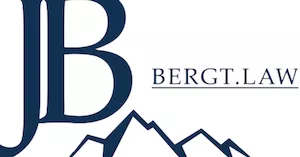- within Finance and Banking topic(s)
- in United States
- with readers working within the Banking & Credit industries
- within Law Practice Management, Tax and Corporate/Commercial Law topic(s)
- with readers working within the Consumer Industries, Healthcare and Oil & Gas industries
Introduction
Liechtenstein is moving to transpose Directive (EU) 2024/927 ("AIFMD II") and to operationalize the revamped ELTIF (European Long Term Investment Fund) regime (Regulation (EU) 2023/606 together with Delegated Regulation (EU) 2024/2759), by comprehensively amending the AIFM Act (AIFMG), UCITS Act (UCITSG), and, for consistency, the Investment Undertakings Act (IUG) and the Financial Market Authority Act (FMAG); in practical terms, this legislative package secures alignment with the latest EU fund law while preserving the EEA passport and raising the bar on supervisory tooling, governance, and liquidity risk controls.
At the core of AIFMD II lie targeted upgrades—credit granting rules for AIFs, clearer and enforceable outsourcing standards, harmonized access to depositary services across borders, better-quality supervisory data, and calibrated liquidity-management tools—each chosen to reduce systemic risk and to smooth remaining frictions between the AIFM and UCITS frameworks, thereby supporting the single market for funds.
On timing and process, both EU legal acts are in the EEA incorporation pipeline; for Liechtenstein, the Government has already signalled that the Parliament is expected to consider the relevant report and motion in the October 2025 session, a scheduling choice that gives market participants a clear runway to plan implementation, documentation updates, and operational transitions.
What changes matter commercially?
1) Cross-border depositaries—more options, case-by-case guardrails
In line with AIFMD II, Liechtenstein will allow, under defined conditions, the appointment of a depositary established in another EEA state; this includes a specific FMA power to approve such an appointment in individual cases even where market-wide thresholds (e.g., total AuC > EUR 50bn) are exceeded, particularly where the asset strategy would otherwise be disadvantaged domestically—an ultimately pragmatic, "minimum-implementation" approach that expands viable structuring choices without sacrificing supervisory discretion.
2) Liquidity management—LMTs move from "nice to have" to operational must-have
Supervisory powers are tightened: the FMA may request activation or deactivation of specified liquidity-management instruments (LMTs) in the interest of investors and financial stability; this formalizes "break-glass" capabilities and aligns with market feedback in consultation recognizing LMTs as central to orderly redemption under stress, with industry also advocating pragmatic, fast-track ways to retrofit LMTs into fund constitutive documents.
3) ELTIF 2.0—flexibility in, frictions out
ELTIFs are explicitly promoted as a cross-border long-term finance product, with broadened eligible assets, differentiated treatment for professional vs. retail investors, and harmonized interactions with MiFID suitability rules; taken together with Delegated Regulation (EU) 2024/2759 on hedging, redemptions, LMTs, and cost disclosures, the package materially enhances feasibility for managers and accessibility for investors.
4) Supervisory transparency and auditor touchpoints—fewer blind spots
The draft clarifies confidentiality rules while expressly enabling the FMA to share necessary information with audit firms and to conduct on-site reviews (announced or not), including quality control of fund auditors—an incremental but meaningful step that will shorten feedback loops and lift assurance over reporting.
5) AIFM "MiFID adjacency"—when ancillary services trigger MiFID II overlays
Where AIFMs provide individual portfolio management or certain ancillary services, the package clarifies which MiFID II conduct and conflict-management provisions—implemented locally in the Wertpapierfirmengesetz (WPFG)—apply, while carving back duplicative vendor-selection obligations that are already fully covered under the AIFM rulebook; the result is crisper scoping with fewer overlaps.
6) Consultation temperature check—supportive, with operational asks
The Government's consultation drew 11 submissions across courts, industry bodies, and professions; stakeholders broadly backed tighter liquidation rules and supervisory oversight, emphasized the importance of LMTs, and—crucially—asked for administratively efficient pathways (e.g., fast-track or transition periods) to embed LMTs into constitutive documents without undue burden.
Why this matters for your platform strategy
For managers, administrators, and depositaries active in or through Liechtenstein, the package is more than an exercise in formal alignment: it safeguards the EEA passport by harmonizing local law with the new EU baseline, expands depositary and ELTIF structuring degrees of freedom, and equips the supervisor with calibrated tools that, used proportionately, can stabilize liquidity events; the net effect is a more resilient—and more competitive—funds hub for export from Liechtenstein into the EEA.
What you should do now
- Map the directive and regulation touchpoints across your Liechtenstein products and delegations;
- Prepare LMT playbooks (governance, activation criteria, investor comms) and initiate document updates;
- Revisit depositary strategy for specialized assets and cross-border custody needs;
- Review audit interfaces, data quality, and supervisory reporting pipelines;
- For ELTIF use-cases, reassess eligibility, portfolio construction, and distribution to leverage the new flexibility.
Bergt Law advises leading managers, fintechs, and service providers on AIF/UCITS topics, ELTIF launches, MiFID overlays for AIFMs, and complex cross-border depositary solutions. To discuss what this reform means for your product roadmap or to run a readiness workshop with our regulatory and teams, reach out via bergt.law/en.
Sources: Report And Motion By The Government To The Principality Of Liechtenstein Parliament Regarding The Amendment Of The Law On Managers Of Alternative Investment Funds (AIFM) And The Law On Certain Undertakings For Collective Investment In Securities (UCITSG) And Other Laws No. 60/2025.
Executive Summary:
- Liechtenstein's 2025 fund law package implements AIFMD II and makes ELTIF 2.0 fully operable, while aligning UCITS, IUG and FMAG for consistency and passport certainty.
- AIFMD II's focal points: lending by AIFs, outsourcing standards, cross-border depositary access, improved supervisory data, and enforceable LMT frameworks.
- The FMA can require activation/deactivation of LMTs and intensify auditor oversight, strengthening crisis tooling and reporting assurance.
- Cross-border depositaries become a viable option subject to FMA case-by-case approval—even above market-wide thresholds—where local custody options are unsuitable for the asset strategy.
- ELTIFs gain practical flexibility and investor reach; Delegated Regulation (EU) 2024/2759 refines hedging, redemptions, LMTs, and cost disclosures.
- AIFMs offering certain ancillary services must observe specified MiFID II conduct/conflict rules under WPFG, with duplications pared back.
- EEA incorporation is underway; the Liechtenstein Parliament is expected to consider the Government's report in October 2025, guiding
The content of this article is intended to provide a general
guide to the subject matter. Specialist advice should be sought
about your specific circumstances.


